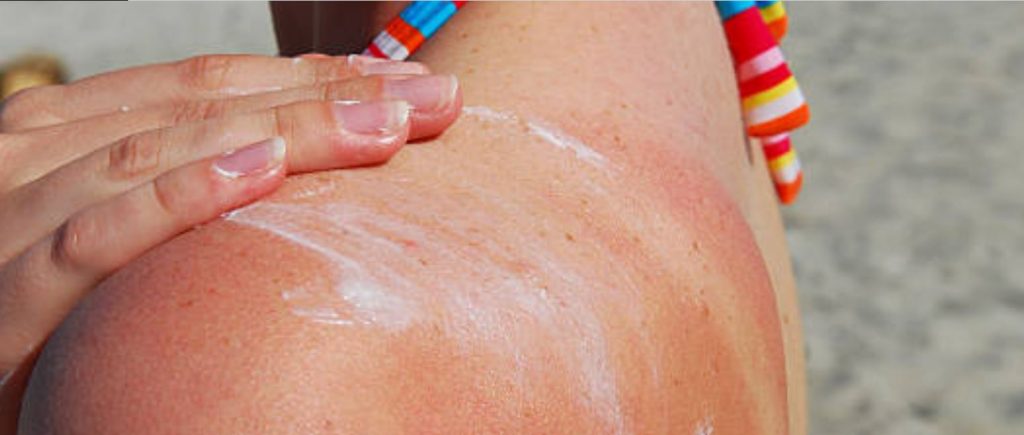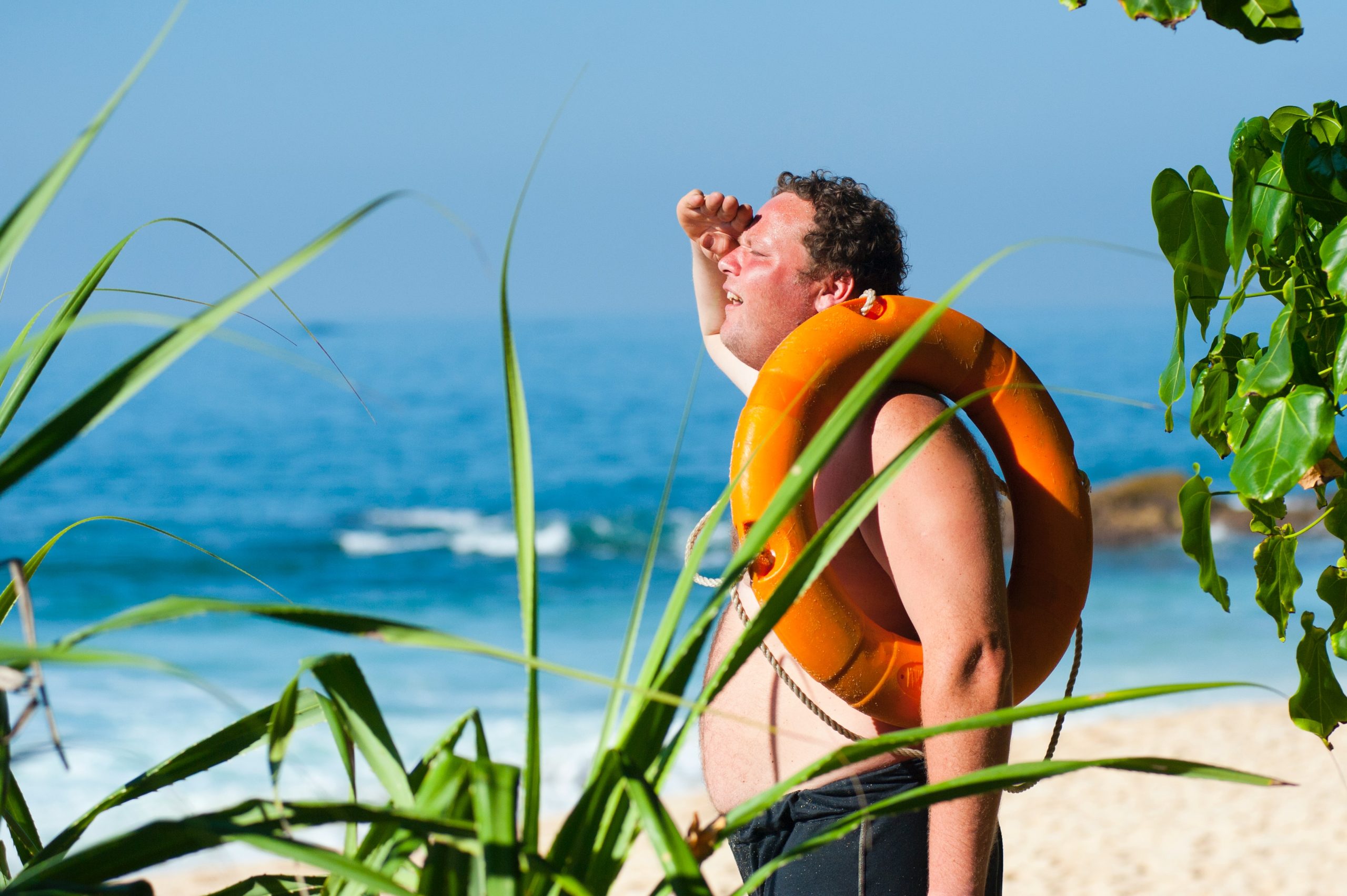It’s easy to forget the dangers of the harsh sun when you’re out having fun on one of your travels, especially if it’s at the beach. One minute you’re being carefree, the next, you’re scratching at the burning sensation on your skin. If this is the case, then you might be experiencing sunburn and will require treatment.
Sunburn is skin damage caused by extreme exposure to ultraviolet (UV) rays which are also emitted by the sun, among other things. UV rays can penetrate and change the structure of the skin’s DNA. This damage can lead to premature aging of the skin, as well as an increased risk for skin cancer.
In this article, we’ll discuss sunburn relief tips, the types of UV rays you should be aware of, as well as the causes and symptoms of sunburn.
Let’s get started.
Sunburn Relief Tips:
There are many home remedies that can help relieve the pain and discomfort of sunburn. Here are some of the most popular sunburn relief tips:
- Take a cool bath or shower. This will help to soothe your skin and reduce inflammation. First, you need to make sure the water is not too hot as this can further damage your skin. Add some oatmeal to your bathwater to help relieve itchiness.
- Use a cool compress. Soak a clean cloth in cool water and apply it to the affected area for 10-15 minutes. Repeat this process as needed.
- Apply aloe vera gel. This natural remedy can help to soothe and heal sunburned skin.
- Avoid scratching or rubbing your skin. This will only make the irritation worse. If you must scratch, do it gently with your fingertips.
- Drink plenty of fluids. Sunburn can cause dehydration so it’s important to stay hydrated. Drink lots of water and avoid alcoholic beverages.
- Take ibuprofen. This will help to reduce pain and inflammation but make sure that your physician has prescribed this drug.
- Don’t expose your skin to the sun. Once you have a sunburn, it’s important to avoid further exposure to the sun. Cover up with clothing and use sunscreen with at least SPF 30.
- Apply a medicated cream. If your sunburn is severe, you may need to apply a medicated cream such as hydrocortisone.
- Keeps hands off blisters. Blisters can result from sunburn and they can be very painful. It’s important to leave them alone so they can heal properly.
- See a doctor. If you have a fever, chills, or your sunburn is covering more than 20% of your body, it’s time to see a doctor. These could be signs of heat stroke or heat exhaustion.
What Causes Sunburn?
Sunburn is caused by exposure to UV rays. These are the same rays that are used in tanning beds and sun lamps. The UV rays damage the skin’s DNA, which can lead to premature aging and an increased risk for skin cancer.
What Are UV Rays?
UV rays are a type of electromagnetic radiation that comes from the sun.
These rays are invisible to the naked eye and are divided into three categories:
UVA rays make up 95% of the UV radiation that reaches the earth’s surface. They are responsible for tanning but can also cause long-term skin damage, such as wrinkles and age spots.
UVB rays make up 5% of the UV radiation that reaches the earth’s surface. They are the primary cause of sunburn and are also linked to skin cancer.
UVC rays are the most harmful type of UV radiation but fortunately, they are completely filtered by the Earth’s atmosphere and do not reach us.
What are the symptoms of sunburn?

The symptoms of sunburn depend on the severity of the burn.
Mild sunburn. You know that your sunburn is mild if your skin is red and feels warm to the touch but you’re not in any pain.
Moderate sunburn. Your skin will be red, swollen, and painful to the touch. You may also develop blisters.
Severe sunburn. This is a medical emergency. Symptoms include fever, chills, nausea, and vomiting. The skin will be red, swollen, and painful. Blisters may cover a large area of the body.
Dehydration is also an indication of extreme sunburn. This is when the person is experiencing excessive thirst, dry mouth, little or no urination, severe weakness or dizziness.
If you have any of these symptoms, seek medical attention immediately.
How can I prevent sunburn?
- The best way to prevent sunburn is to avoid being in the sun during peak UV hours (10 am to 4 pm). If you must be in the sun, take the following precautions:
- Wear sunscreen with an SPF of 30 or higher. Apply sunscreen all over your body and apply an extra amount to exposed areas. Reapply sunscreen every 3 hours or more often if you’re going to get wet.
- Wear clothes that cover up your skin. Get into the habit of wearing long-sleeved shirts, long pants, sunglasses and hats when going out on a sunny day.
- Stay in the shade whenever possible.
- Use a lip balm or cream that contains sunscreen with an SPF of 30 or higher.
What are the treatments for sunburn?
The goal of treatment is to relieve pain and inflammation. The tips in this article are not medical advice. If you’re feeling pain of any kind, see a doctor at once.
However, for mild sunburn, these tips can help.
- Take a cool bath or shower.
- Drink plenty of fluids, such as water, juice, or sports drinks. Avoid caffeine and alcohol, which can dehydrate the body.
- Apply a moisturizer or aloe vera gel to the affected area. Do not apply topical corticosteroids, such as hydrocortisone, to sunburned skin.
- Take ibuprofen (Advil, Motrin) or naproxen (Aleve) to help relieve pain and inflammation.
- Wear loose, soft clothing that does not irritate the skin.
Remember to take precautions when spending time in the sun and always apply sunscreen with an SPF of 30 or higher. If you do get sunburned, be sure to drink plenty of fluids and take your prescribed pain reliever. Aloe vera gel can also help to soothe the skin.
If you have severe sunburn, seek medical attention immediately.
Take care and stay safe under the sun.




